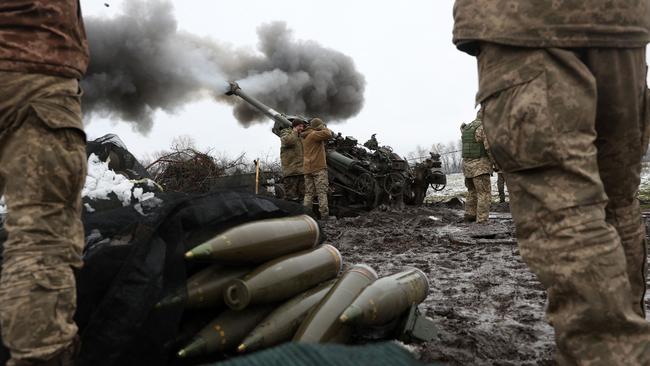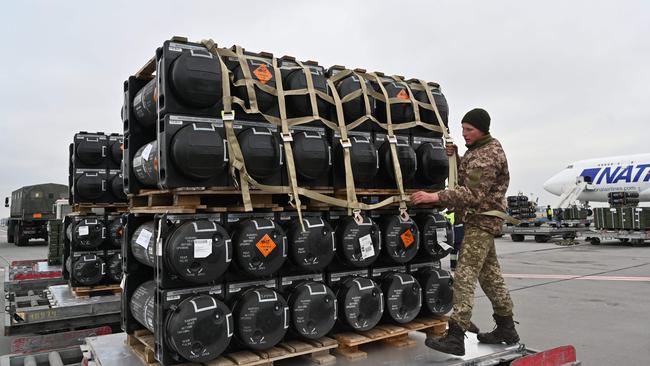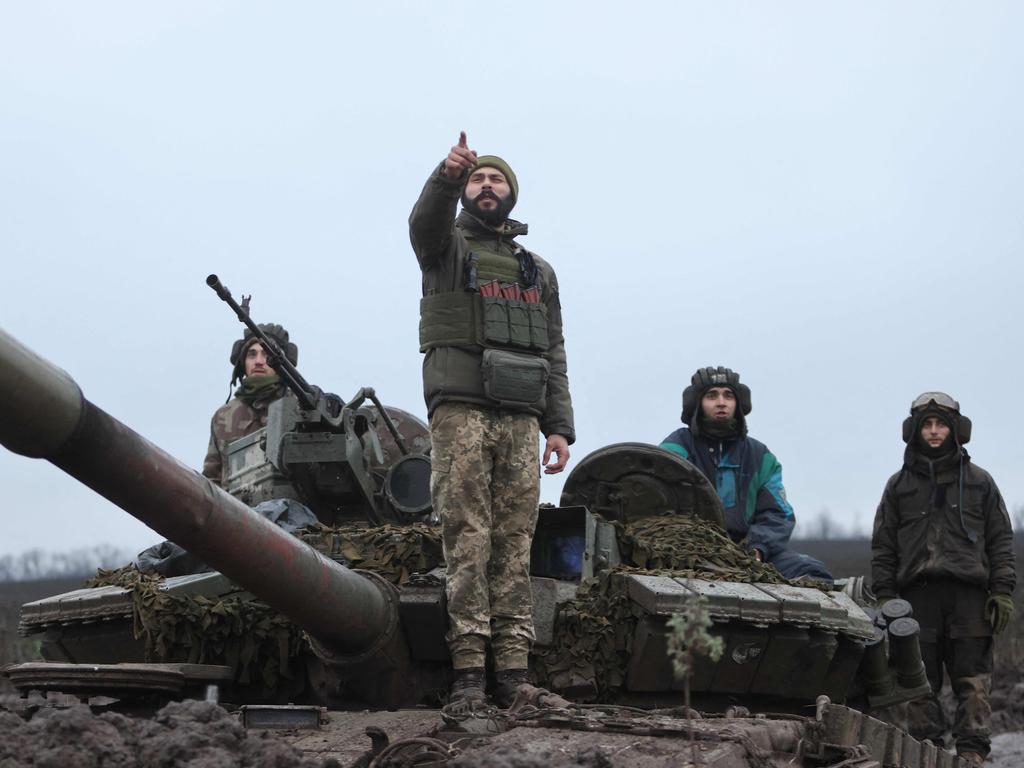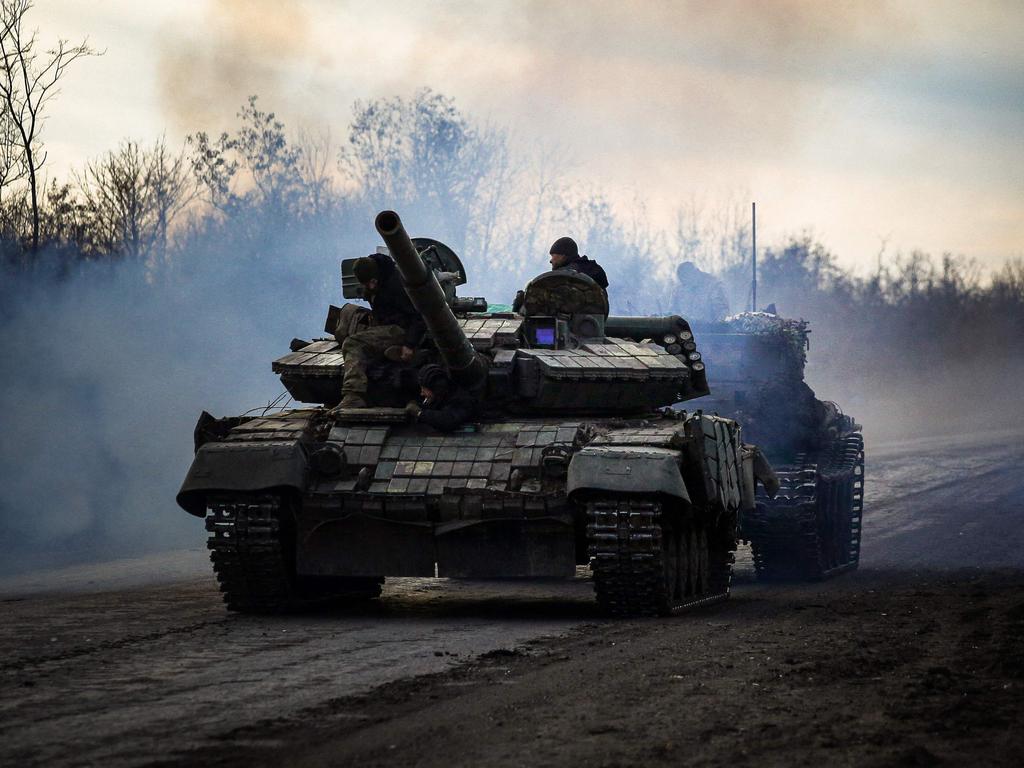Arming Kyiv leaves Europe chronically short of ammunition
Many NATO members can no longer meet their obligation to retain enough arsenals to fight a land war for 30 days, raising concerns for Ukraine’s supplies.

Europe is facing a “dramatic” shortage of ammunition and may not have enough manufacturing capacity until the second half of this decade, Estonia’s most senior defence official has warned.
Even before the Russian invasion of Ukraine the continent’s arsenals of basic munitions were running low after more than 20 years of gearing up for high-tech counter-insurgency missions rather than sustained land warfare at high intensity.
Since February NATO’s European members have further depleted their reserves by pledging or donating well over €10bn ($15.4bn) of military aide to the Ukrainians, including millions of rounds for firearms, hundreds of thousands of artillery shells and tens of thousands of shoulder-mounted rockets. Many are no longer able to meet their NATO obligation to retain enough ammunition to fight a land war for 30 days, raising concerns that they may not be able to keep up the flow of arms to Kyiv at the same time as replenishing their own forces.

Kusti Salm, permanent secretary of the Estonian defence ministry, said Europe was now paying the price for the “irresponsible” failure to prepare for a Ukraine-style conflict.
“The past two decades in the national defence of NATO allies have been very much focused on the out-of-area operations where the ammunition requirements are not as large, which has translated into very low ammunition stocks,” he said after a meeting with his British counterparts in London,” Mr Salm said.
“It’s clearly unfortunate, in Estonia’s view, given the much more conventional threats. We would also call it irresponsible. But now it’s not really time to play the blame game. Now it’s time to find solutions.”
Just about every significant variety of ammunition is scarce. The 155mm shells used by modern western artillery guns in Ukraine such as the German Panzerhaubitze 2000 and most American howitzers are in desperately short supply. Gaps are even beginning to appear in the vast stockpiles of the US military. Supplies of missiles for warships such as the Tomahawk and Harpoon, medium-range multiple rocket launchers, and shoulder-mounted Javelin and Stinger systems are dwindling.
On Sunday the Wall Street Journal reported that Washington had fallen behind on $US5bn ($7.34bn) worth of arms deliveries to Taiwan, including 208 Javelins and 215 Stingers, none of which has yet materialised.
German defence industry sources said there were also widespread shortages of tank shells and the various medium-calibre rounds used in automatic cannons on armoured vehicles.
Germany is in particular trouble. It needs to procure another €20bn to €30bn worth of ammunition simply to meet its NATO requirements. Some analysts estimate that the German armed forces, known as the Bundeswehr, would run out of munitions after as little as two days of combat.
Even before February 24 it was clear that Germany has a long way to go to meet its NATO targets in the realm of ammunition,” Sara Nanni, the Green party’s defence spokeswoman in the Bundestag, said. “But it’s not clear to me why we didn’t set every lever in motion to make things move faster after February 24 at the very latest.”
Despite a €100bn rearmament fund, only €1.1bn has so far been earmarked for buying ammunition over the coming year, with political leaders blaming the arms industry for reacting too slowly and munitions manufacturers accusing the government of dithering in a tangle of red tape.
European governments are now trying to revive their degraded military industrial bases but many, like Germany, have yet to place significant orders for ammunition. Arms manufacturers are also struggling with inflationary headwinds from high energy prices, a tight market for skilled labour, the rising cost of raw materials and bottlenecks in the supply of more advanced components such as semiconductors.
Mr Salm added: “The realistic expectation is that if we start moving very fast now the problem will be solved in 2025 or later, which is already a very dramatic situation. But every single day we wait, the timeline will just slip more to the right.”
– The Times






To join the conversation, please log in. Don't have an account? Register
Join the conversation, you are commenting as Logout